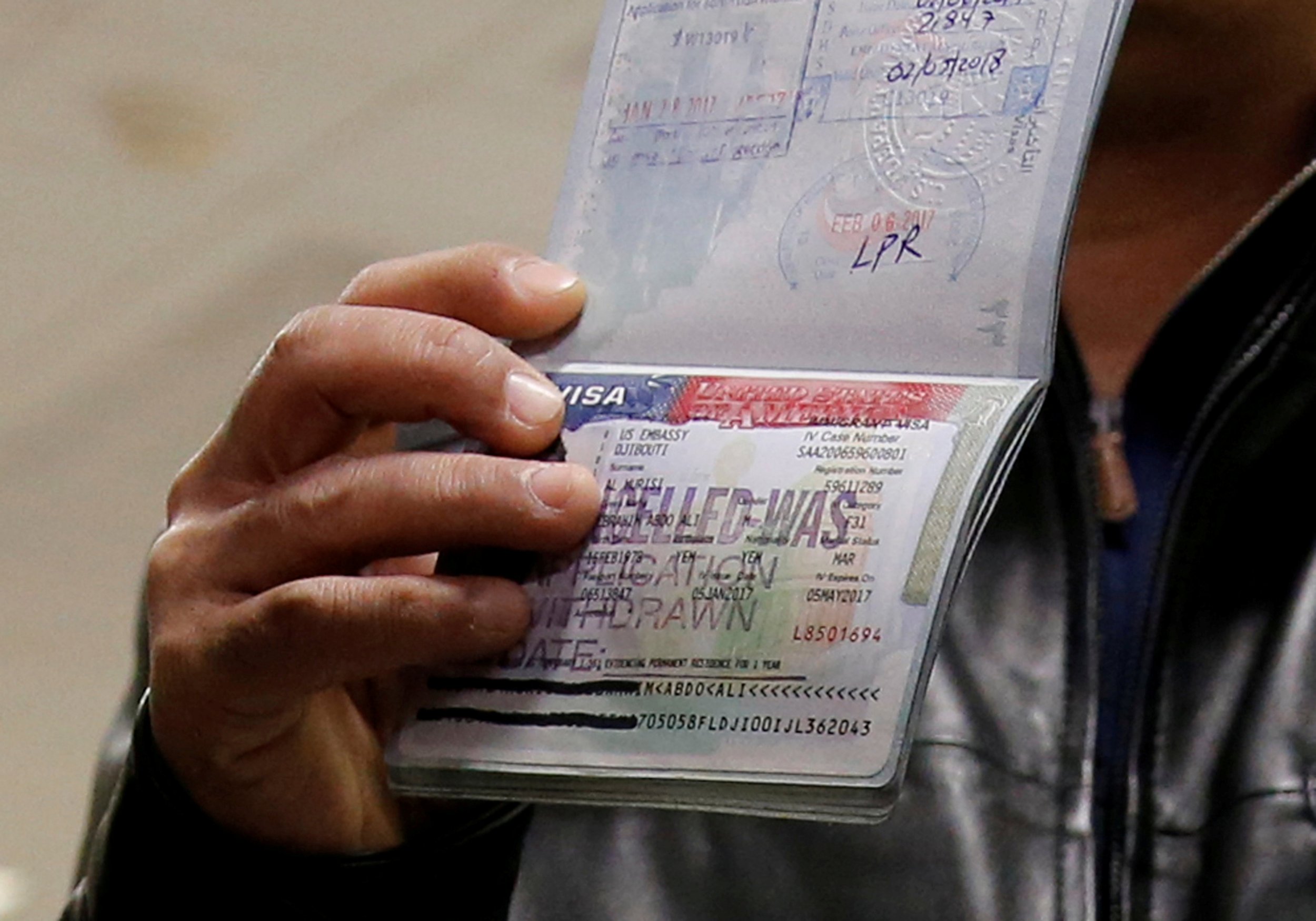
Updated | Acting U.S. Solicitor General Jeffrey Wall argued in a federal appeals court in Richmond, Virginia on Monday that President Donald Trump's travel ban executive order was about national security, not discriminating against Muslims.
The court heard oral arguments in International Refugee Assistance Project v. Trump . The Trump administration is appealing a March 16 decision by a Maryland-based federal judge, Theodore Chuang, that blocked the White House's March 6 executive order, a revised version of the original travel ban.
Under the March 6 executive order, citizens from six Muslim-majority countries—Iran, Syria, Sudan, Libya, Yemen and Somalia—would be prohibited from obtaining new visas. Also, the U.S. refugee resettlement program would be suspended for 120 days, and the order sought to reduce the annual number of refugee admissions to 50,000 for fiscal year 2017, from the usual 110,000.
Related: Six states pursuing legal action against Trump's new travel ban
Facing a grilling by Fourth Circuit Court of Appeals judges, Wall, arguing on behalf of Trump, maintained that "this is not a Muslim ban." The judges pressed Wall on how the 82 million people in the six countries affected by the executive order could be considered detrimental to the U.S., and Wall responded by shifting the blame to the administration of President Barack Obama, saying Trump's decision was made because it had singled out the six countries as providing inadequate information about people who applied for visas to the U.S.
The judges paid particular attention to comments made by Trump during his presidential campaign, and those made by White House Press Secretary Sean Spicer. Wall stressed that the president's statements were "ambiguous" and shouldn't hold the same weight as if they were made by the president once he took office. Judge Robert King responded: "He's never repudiated what he said."
Comments made by Trump during his presidential campaign, including his stated desire to see "a total and complete shutdown of Muslims entering the U.S." Lawyers for the American Civil Liberties Union (ACLU), the organization representing the challengers, have said Trump "committed himself to an indefensible goal: banning Muslims from coming to the United States."
Arguing the case, Omar Jadwat, director of the ACLU's Immigrants' Rights Project, said it's clear Trump is targeting Muslims with the ban. Amid tough questioning by the judges, Jadwat pointed out that a statement outlining Trump's intention to enact a "total and complete shutdown of Muslims entering the U.S." was still on his campaign website.
However, by the time arguments started on Monday, the statement had been taken down from the website. The statement appeared to have been removed shortly after the White House press briefing on Monday. (A cached version of it can be viewed here .)
The White House originally said the 90-day ban would be put in place while a review was under way of the vetting process for travelers from those countries. The administration also maintained that the travel and refugee ban was necessary to fight terrorism. Refugee advocates, including HIAS, a resettlement agency, said the executive order "would cause irreparable damage."
Wall said that in the past 90 days, "we've done nothing to review the vetting procedures for these nations" due to various court rulings blocking the executive order.
The arguments were the first in front of an appeals court to address the March 6 executive order. Among the challengers in the Maryland case are a number of U.S. citizens who maintain that the travel ban would prevent family members from entering the U.S. Their lawsuit alleges Trump's executive order violates the U.S. Constitution because it discriminates on religious grounds.
Trump's first attempt to enact a travel ban was blocked by the courts. After his January 27 executive order was enacted, chaos quickly erupted at U.S. airports and many international hubs around the world, as confused travelers, including green card holders and permanent residents of the U.S., were stranded and prevented from entering the U.S.
The next legal action against the March executive order will take place on May 15. The San Francisco-based 9th U.S. Circuit Court of Appeals will hear arguments in an appeal of a Hawaii judge's decision blocking of the executive order's entry restrictions and the refugee ban. It is not clear when a ruling will come down from Monday's hearing.
This article has been updated to include information from Monday's hearing.
Uncommon Knowledge
Newsweek is committed to challenging conventional wisdom and finding connections in the search for common ground.
Newsweek is committed to challenging conventional wisdom and finding connections in the search for common ground.
About the writer
Before joining Newsweek, Lucy Westcott was an editorial fellow at The Wire. Previously a United Nations correspondent for the Inter ... Read more
To read how Newsweek uses AI as a newsroom tool, Click here.








